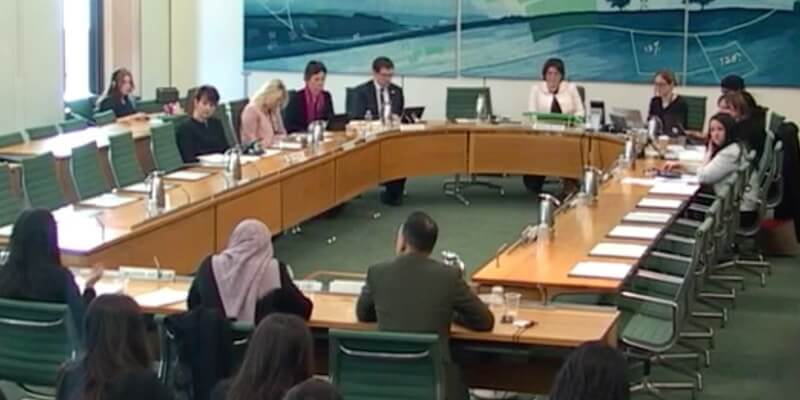Engaging with Muslim Communities should not be seen “through the lens of counter-extremism” says Women and Equalities Committee


The Women and Equalities Committee have recently stated in **[their report](http://www.publications.parliament.uk/pa/cm201617/cmselect/cmwomeq/89/8902.htm)** that Muslim participants felt they were “being treated as a suspect community” by government’s interventions and especially through PREVENT. Other individuals “were reluctant to engage […] for fear that our inquiry was part of the Prevent programme”. This is a clear indication to the toxicity and community disdain for PREVENT. Crucially, the report calls for the need to rather rebuild trust with Muslim communities through “adopting an approach to integration which focuses on how it improves the life chances of disadvantaged communities rather than through the lens of counter-extremism.” CAGE has consistently highlighted this fact throughout the years and has called for positive engagement that addresses the real concerns and grievances of the community. Importantly, the committee’s report calls for the government to achieve equality for British Muslims “separated from the Government’s work to challenge extremism”. [read more: CAGE’s response to Counter-Extremism and Safeguarding Bill](https://cage.ngo/article/cages-response-to-counter-extremism-and-safeguarding-bill/) This point was **[highlighted as far back as 2011](https://www.gov.uk/government/uploads/system/uploads/attachment_data/file/97994/contest-summary.pdf)** in the government’s own reports, which focused on the need to avoid securitising its integration work. However, government policies have continued to alienate communities by doing exactly that. This was exemplified by the remarks of former prime minister David Cameron, that young Muslim men were vulnerable to extremism because of the “**[traditional submissiveness of Muslim women](http://www.telegraph.co.uk/news/uknews/terrorism-in-the-uk/12104556/David-Cameron-More-Muslim-women-should-learn-English-to-help-tackle-extremism.html)**” – and he then demanded that women learn English. Conflating an inability to speak English with “extremism” was inflammatory, and his remarks **[caused outrage](http://www.bbc.co.uk/news/blogs-trending-35403106)**, but they also exposed the government’s line when it comes to Muslims. These comments were also repeated to the committee’s enquiry by the former Skills minister who made even clearer links between a lack of English skills and susceptibility to extremism. In a candid response to these claims, a **[Pakistani mother](https://www.youtube.com/watch?v=Vg1yyFOPPEI)** told Channel 4 news, “extremists are a result of the discord and troubles these people left behind in those countries”. CAGE’s most **[recent report](https://cage.ngo/publication/we-are-completely-independent/)** exposed how the government has engaged in a secretive propaganda programme to steer the discussion around “extremism” within Muslim communities. This further erodes trust. Through its PREVENT agenda, the government is approaching all aspects of Muslim life through a counterproductive securitised lense. Not only does this view antagonise Muslims, but it also cements the assertion that Muslims are a problem community. Furthermore, the government agenda has given rise to and sustained organisations that have a vested interest in perpetuating this state of affairs. **[Read more: How PREVENT propaganda makes its way to you (Report Infographics)](https://cage.ngo/article/how-prevent-propaganda-makes-its-way-to-you-report-infographics/)** There seems to be little signs of a policy shift to address these concerns. The announcement of the Counter-Extremism and Safeguarding Bill was a declaration that this securitised approach will continue. The Bill will act as an extension of PREVENT, which the Women and Equalities Committee described as a ‘significant source of tension’ for Muslim participants they encountered. Viewing an entire community through a state-sponsored climate of surveillance and suspicion will only ensure further demonisation and disenfranchisement. The recommendations of the Women and Equalities Committee centre around the need to do away with this securitised lens, and rather address the root grievances of Muslim communities, and to right existing inequalities in British society. These recommendations must be heeded, not only because they come from a crucial voice within the community, but also because they are key to making political violence less appealing for those who already feel disenfranchised. (CC image courtesy of [Parliament TV](http://www.parliament.uk/business/committees/committees-a-z/commons-select/women-and-equalities-committee/news-parliament-2015/employment-opportunities-for-muslim-women-evidence-15-16/))
Download Files








